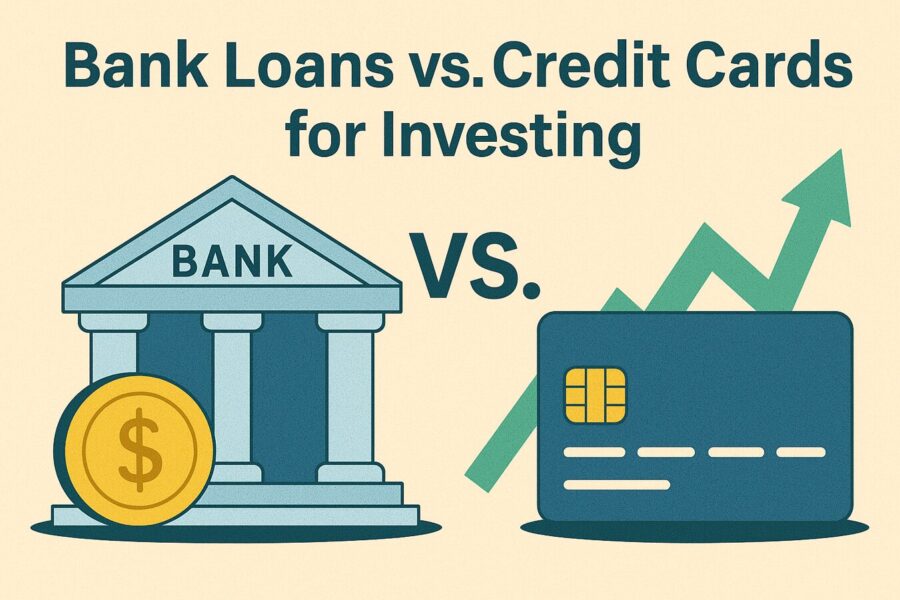Can I Buy Mutual Fund With Credit Card?: Everything You Need to Know
- 30 Oct 25
- 10 mins

Can I Buy Mutual Fund With Credit Card?: Everything You Need to Know
- Is It Possible to Buy Mutual Fund with a Credit Card?
- Mode of Payment for Mutual Fund Investments
- How Does SIP Investment Work?
- Alternative Ways of Using Credit Cards for Mutual Fund Investments
- Why Are Credit Cards Not Allowed for Mutual Fund Investments?
- Payment Gateway Options and Fees
- Bank Loans vs. Credit Cards for Investing
- Platform Payment and Selection from Credit Card
- Cardholder Agreement and Breach of Terms
- Conclusion
Key Takeaways
- It is not possible for a person to buy mutual funds with a credit card in case funds in the user's account is low.
- Other alternatives like debit cards, net banking, UPI, and more can be used to start SIPs and invest in mutual funds.
- Regulators like SEBI do not accept credit card as a mode of payment neither in lumpsum or through SIP investments as they want to trace the money invested.
- Redemption of the invested amount also becomes complicated when the source is a credit card.
- There are other ways to use credit cards for mutual find investment, but there can be significant merchant charges over the same.
With the growing interest in equity, debt, and hybrid schemes, Indian investors are increasingly seeking flexible payment options. Amidst market volatility and risk, large-cap, mid-cap, aggressive hybrid, and ELSS funds still indicate potential for long-term financial gain. Considering the market potential, many individuals wonder whether it is possible to invest conveniently using their cards.
This leads to a common question: Can I buy mutual fund with credit card if my bank balance is low? Let us explore how investments actually work and what the regulations say.
Is It Possible to Buy Mutual Fund with a Credit Card?

The simple response is no. In most cases, you cannot buy mutual funds directly with the help of credit or debit cards in India. In case you are strictly interested in mutual fund investments, then you should make use of another payment method, which can be net banking, UPI or cheques.
Nevertheless, some purchases can be made using a credit card, including the National Pension Scheme (NPS) or buying digital gold. This is limited by the fact that the regulators are concerned about transparency, tracing the origin of money and guarding the investors against making too much interest on the loan.
Mode of Payment for Mutual Fund Investments
Credit card substitutes for the mutual fund investments may be in the form of methods that enable you to debit the investment amount directly into your bank account. The commonly accepted modes are as follows:
- Net banking
- NEFT or RTGS
- IMPS
- UPI
- Demand drafts
- Cheque
- E-wallets/mobile wallets.
- Debit cards
- Cash
Such modes are used on lump-sum investments. With Systematic Investment Plans (SIPs), this is not the case. The investors are usually asked by mutual fund houses to establish an automatic debit mandate on their bank accounts. This will give you a smooth, whole process whereby your contribution payment is automatic and you are not cash-strapped by missed deadlines.
How Does SIP Investment Work?
A Systematic Investment Plan (SIP) is a scheme whereby you can invest a fixed sum at a fixed frequency. As an example, assume that you want to open a SIP of 500 rupees per month, you would have your bank debit you 500 rupees every month. This process does away with the manual processes and brings in discipline in investments.
The bank will usually withdraw your account on the pay date and send it to the fund house (the biller). The money is then invested by the mutual fund company in your portfolio. This default setup makes the lump sum investment payment gateways default with SIPs.
The key advantage of SIPs is that you invest on a regular basis without having to expose yourself to unnecessary loan interest rate risk as opposed to charging your SIP using a credit card cash advance.
Alternative Ways of Using Credit Cards for Mutual Fund Investments
Direct buying of mutual funds with cards is not permitted; however, some investors attempt to find an indirect approach:
- Take the cash from your credit card and transfer it to your digital wallet and then invest in a mutual fund.
- Move the money in your online wallet to your bank account, and then invest in mutual funds.
Nevertheless, both approaches are accompanied by a price. Transferring money using a credit card to a wallet attracts cash advance fees, transaction fees and processing fees which in most cases are higher than the normal merchant fees. Failure to pay the credit card bill at the right time will result in interest charged at a high rate of interest on the loan and this will negatively affect your credit score.
Even the wallet-to-bank transfers require a transfer fee. So such routes seem convenient but not always cost-effective and in line with the terms of the cardholder agreement that you signed upon applying to use the card. One must always read the fine print in order not to violate terms or misinterpret the actual definitions of purchases.
Why Are Credit Cards Not Allowed for Mutual Fund Investments?

Regulatory Authority Guidelines
A regulator (like SEBI) has the responsibility of encouraging transparency in the processes. Credit cards constitute an unsecured loan, and it may be difficult to trace back. This is the reason why the regulator limits the lending of credit cards in mutual fund investments both in lump sum and SIP.
Tracking Source of Funds
The tax officials would like to know where the investments and redemptions are sourced. This facilitates taxation. Making purchases with credit cards will complicate this and could make it difficult for the authorities to establish whether the amount was a real purchase or an investment.
Link to Redemption Account
Upon a redemption of your mutual fund, the proceeds are deposited into your registered bank savings account. Money would be transferred back to the credit card in case credit card payments are accepted. This makes it challenging to settle and poses questions with regard to payment by merchants, how you would make the payment to the platform and even possible conflict in relation to what you have agreed to with your cardholder.
Tax Benefits and Section 80C
The question many investors pose is whether or not it is possible to fund mutual funds through credit cards and receive tax benefits. According to Section 80C of the Income Tax Act, investments made in some investments like ELSS (Equity-Linked Savings Schemes) are subject to tax deductions.
Nevertheless, since you are not able to invest directly using a credit card, you have to transfer funds to your ELSS investment using admissible ways (bank transfer, UPI, etc.) to claim the benefits of Section 80C legally.
This is another reason why “can I buy mutual fund with credit card?” is mostly answered with a no. It is not only about SEBI rules but also about maintaining eligibility for tax deductions.
Payment Gateway Options and Fees
Whenever you spend money on the internet, all your transactions are processed through a payment gateway. Such gateways may introduce expenses, and knowing them allows for preventing unpleasant surprises:
- Payment gateway cost and merchant fee: Typically passed over to the fund house or platform.
- Workarounds such as wallets or third-party applications: Can cause additional transaction fees or processing fees charged to the investor.
- The payment option within Platform: In all cases, it is necessary to verify whether it accepts credit/debit cards, UPI, or direct bank mandates.
- Getting the actual balance in a wallet of a credit card: May attract additional charges and potential violation of conditions in terms of card regulations.
It is important to understand that careful review helps minimise costs.
Bank Loans vs. Credit Cards for Investing

There are those who claim that borrowing from bank loans to invest in mutual funds is as good as using a credit card. Although the two can be characterised by borrowed money, bank loans are usually accompanied by lower interest rates and have a specified repayment period. Credit cards on the other hand are usually associated with the loan interest rate and revolving credit, which is not suitable for long-term investments.
This difference serves to reinforce the reasons why SEBI and fund houses opt not to fund it using a credit card, which insulates investors against debt traps whilst encouraging healthy and disciplined investing behaviours.
💡If you want to pay your credit card bills in a smooth and secured way, use the PICE App
Platform Payment and Selection from Credit Card
New fintech platforms sometimes advertise easy investing through a single dashboard. While they may offer a platform payment solution, always verify the entire procedure before committing. Some platforms allow a selection of credit cards for NPS or insurance premiums, but not for mutual funds. Misunderstanding these nuances can lead to failed transactions or unexpected fees.
As an investor, ensure your chosen platform discloses all merchant payments, processing charges, and any payment gateway fees upfront. Transparency is key to avoiding hidden costs.
Cardholder Agreement and Breach of Terms
Every credit card comes with a cardholder agreement specifying acceptable uses, including definitions of cash advances and genuine purchase transactions. Funding investments through indirect routes may technically be considered a cash advance, which can trigger higher interest and fees. This could also be seen as a breach of terms if your issuer prohibits such transfers.
Before trying any workaround, read your agreement carefully to understand the implications on your loan interest rate and credit score.
Conclusion
The answer to “can I buy mutual fund with credit card?” remains no. Using bank-based methods protects your Section 80C tax benefits, avoids additional transaction charges, and maintains transparency in your investments. Funding from your bank account, rather than a card, helps you track the entire process without incurring debt, high interest, or costly wallet transfers.
Ultimately, disciplined investing through approved channels, not credit cards, offers clarity, compliance, and long-term financial gain, creating a healthier path for your portfolio and lasting peace of mind.
 By
By 

















